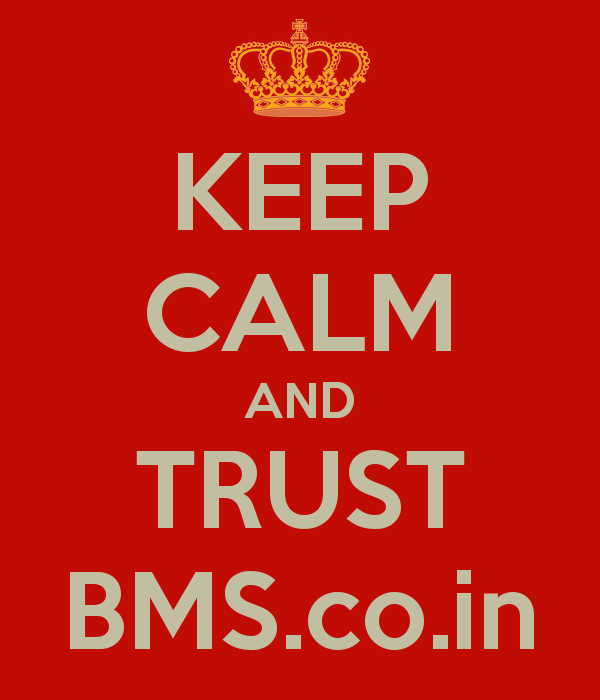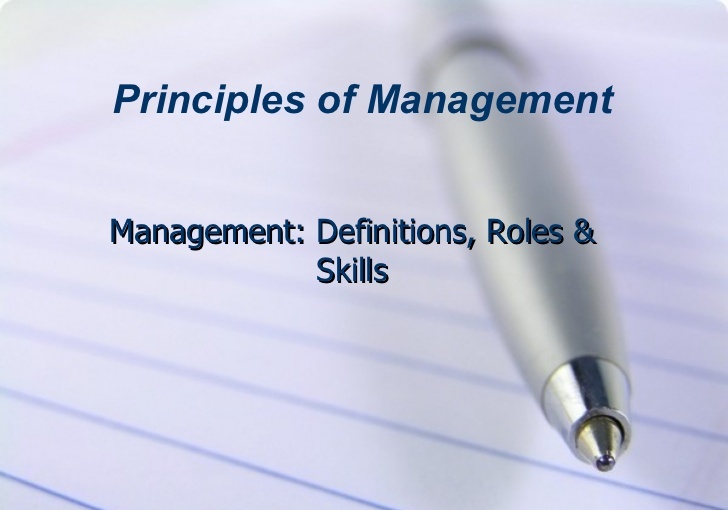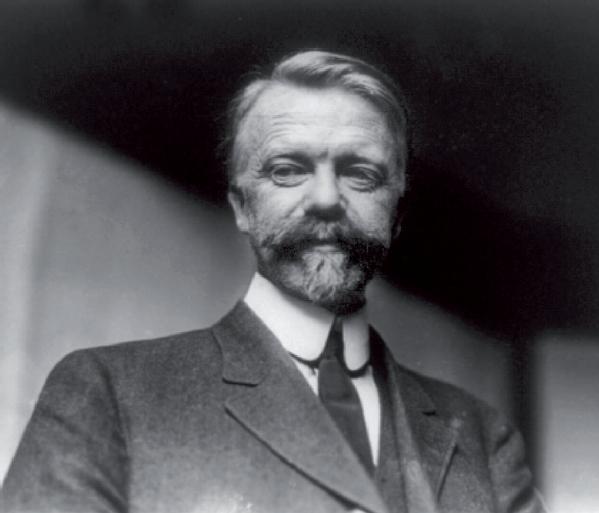FAQ 1. What is POM?
Principles of Management are guidelines for the decisions and actions of managers. They were derived through observation and analysis of events faced in actual practice.
The Principles of Management are the essential, underlying factors that form the foundations of successful management. According to Henri Fayol in his book General and Industrial Management (1916), there are fourteen ‘principles of management’. These can be used to initiate and aid the processes of change, organization, decision making, skill management and the overall view of the management function.
FAQ 2. Why Do I Have To Study This?
Principals of Management or POM as it is popularly known is a subject in Semester 1 of the BMS course. This subject basically deals with the 14 basic principles of management by ‘Henry Fayol’ which form the base of all managerial functions in an organization.
These principals are essential for the smooth functioning of an organization and covers all aspects of work flow, from delegation of authority, discipline, centralization, remuneration, etc.
FAQ 3. Is POM BoorinGGG?
Not really, POM is one of those subjects that is vital to your knowledge of management studies and so is a must do! Whatever you will learn in this subject will be utilized throughout your three years of degree education and the following years at your work place. Any field you go to in order to make a career these principals will have a lasting impact on the way you work and function and hence, studying it well will help you be at an advantage.
FAQ 4. Do I need to join a coaching class for POM?
No, you definitely do not need to join any sort of tutions or classes for this subject. Mugging up the principals is the part where some students might find it difficult but apart from that this subject is all about understanding and getting your basics right. The advantage being that it is quite easy to learn if you put in a little efforts.
FAQ 5. What is the Syllabus for POM?
Below has been mentioned the broad outline of the POM Syllabus and short yet easy to understand descriptions of the core concepts of each unit.
Unit 1: Nature of Management
– What is management?
Management in business and organizations is the function that coordinates the efforts of people to accomplish goals and objectives using available resources efficiently and effectively. Management comprises planning, organizing, staffing, leading or directing, and controlling an organization or initiative to accomplish a goal.
Unit 2: Planning and Decision Making
– What is planning?
Planning (also called forethought) is the process of thinking about and organizing the activities required to achieve a desired goal. Planning involves the creation and maintenance of a plan. As such, planning is a fundamental property of intelligent behavior. This thought process is essential to the creation and refinement of a plan, or integration of it with other plans; that is, it combines forecasting of developments with the preparation of scenarios of how to react to them.
– What is decision making?
Decision-making can be regarded as the cognitive process resulting in the selection of a belief or a course of action among several alternative possibilities. Every decision-making process produces a final choice that may or may not prompt action. Decision-making is the study of identifying and choosing alternatives based on the values and preferences of the decision maker. Decision-making is one of the central activities of management and is a huge part of any process of implementation
Unit 3: Organizing
– What is organizing?
Unit 4: Directing, Leadership, Coordination and Controlling.
– What is Directing?
| DIRECTING is said to be a process in which the managers instruct, guide and oversee the performance of the workers to achieve predetermined goals. Directing is said to be the heart of management process. Planning, organizing, staffing have got no importance if direction function does not take place. |
– What is Leadership?
Leadership has been described as “a process of social influence in which one person can enlist the aid and support of others in the accomplishment of a common task”. For example, some understand a leader simply as somebody whom people follow, or as somebody who guides or directs others while others define leadership as “organizing a group of people to achieve a common goal”.
– What is Coordination?
Coordination is the act of organizing, making different people or things work together for a goal or effect to fulfill desired goals in an organization. Coordination is a managerial function in which different activities of the business are properly adjusted and interlinked.
– What is Controlling?
Controllers design and accompany the management process of defining goals, planning and controlling and thus have a joint responsibility to reach the objectives.
14 Management Principles that YOU must Know – Henry Fayol:
1. DIVISION OF WORK: Work should be divided among individuals and groups to ensure that effort and attention are focused on special portions of the task. Fayol presented work specialization as the best way to use the human resources of the organization.
2. AUTHORITY: The concepts of Authority and responsibility are closely related. Authority was defined by Fayol as the right to give orders and the power to exact obedience. Responsibility involves being accountable, and is therefore naturally associated with authority. Whoever assumes authority also assumes responsibility.
3. DISCIPLINE: A successful organization requires the common effort of workers. Penalties should be applied judiciously to encourage this common effort.
4. UNITY OF COMMAND: Workers should receive orders from only one manager.
5. UNITY OF DIRECTION: The entire organization should be moving towards a common objective in a common direction.
6. SUBORDINATION OF INDIVIDUAL INTERESTS TO THE GENERAL INTERESTS: The interests of one person should not take priority over the interests of the organization as a whole.
7. REMUNERATION: Many variables, such as cost of living, supply of qualified personnel, general business conditions, and success of the business, should be considered in determining a worker’s rate of pay.
8. CENTRALIZATION: Fayol defined centralization as lowering the importance of the subordinate role. Decentralization is increasing the importance. The degree to which centralization or decentralization should be adopted depends on the specific organization in which the manager is working.
9. SCALAR CHAIN: Managers in hierarchies are part of a chain like authority scale. Each manager, from the first line supervisor to the president, possess certain amounts of authority. The President possesses the most authority; the first line supervisor the least. Lower level managers should always keep upper level managers informed of their work activities. The existence of a scalar chain and adherence to it are necessary if the organization is to be successful.
10. ORDER: For the sake of efficiency and coordination, all materials and people related to a specific kind of work should be treated as equally as possible.
11. EQUITY: All employees should be treated as equally as possible.
12. STABILITY OF TENURE OF PERSONNEL: Retaining productive employees should always be a high priority of management. Recruitment and Selection Costs, as well as increased product-reject rates are usually associated with hiring new workers.
13. INITIATIVE: Management should take steps to encourage worker initiative, which is defined as new or additional work activity undertaken through self direction.
14. ESPIRIT DE CORPS: Management should encourage harmony and general good feelings among employees.
You can view the detailed syllabus HERE!
FAQ 6. How Do I Study POM?
POM is a subject you must study thoroughly because as I said earlier, it forms the base of your managerial education. In case you feel that you either like the subject or you really want to score well, then like in all cases it is a must that you spend adequate amount of time over it.
4 very clearly defined units, in this subject ensure that you have quite a lot of concepts and definitions to mug up. An hour of POM four-five days a week is ideal for the top scorer. For internal exams, concepts and definitions for half an hour a day about a week in advance is good enough.
Do remember that it’s Henry Fayol all the way in this subject and the more you quote him the more will marks shower on you throughout the paper.
If you picked up the text book a month in advance, make it a priority subject and get a minimum of 50% of your syllabus done up in the first week of your studies because, it may seem easy but the concepts shouldn’t confuse you on exam day.
POM is not something you take up at the last week or last day because this is a sure shot recipe for disaster, but if you did never mind! Focus on passing because with all the theories and concepts t’s really not that tough to pass the paper if a little common sense and general knowledge is applied.
You need to have read everything once, everything! Just read through like a novel but read it. The questions can be attributed to real life situations and you must have the patience and common sense to be able relate the matter you read in the textbook to answer them.
POM is good for those who want to score, as even though it is a pure theory subject the concepts given out are very relatable and need not be broken your head over when time is short for revisions or studies in most cases.
Study POM not because but because you want to as if you do not understand the basics here you simply won’t be able to grasp the next 5 semesters of BMS life. To score exceptionally you must have a lot of points written down as they are in the text book, the more you improvise the more are the chances of loosing the essence of the answer.
POM needs efforts, do not take it lightly and dig up a KT for something that is very simple in reality!
POM Case Studies, IMPORTANT!
They may not be a lot of fun, but a POM case study is a must solve because prior to the exams even if concepts are difficult to remember these case studies give you an idea of the chapter and help you score the crucial passing marks to save your soul!
F.Y.BMS Students Speak:
We asked a few F.Y.BMS students their take on POM as a subject and this is what they have to say:
TOP 5 Reasons Why We Love <3 POM:
1. The concepts are super easy!
2. Language and jargon are very simple to understand.
3. I do not have to solve any of those irritating sums that I don’t understand.
4. It covers so.. many principles, it gives me the feeling that I am really studying to become a manager.
5. The answers and simple and the can be written in our words easily, if we know the head points well!
TOP 5 reasons Why We Hate </3 POM:
1. It’s got only theory!
2. Every second paragraph talks about Henry Fayol, it’s like he was Amitabh Bacchan!
3. The concepts seem babyish, most of them feel too easy to be called as Management principles.
4. Some of what I study I remember, some well it just zoomes out of my head with a whoosh…
5. It’s BORING to study so much!
Looking at their mixed responses, one of the BMS alumni shared a little story with us,” Me and my friends had the same 5 points on my agenda about how I hated POM and avoided it completely thinking that it was a very easy subject, I mean we treated it like it was a 8th class subject given to 10th class students and all of that laid back attitude backfired on us like nobody’s business! The week before the exam when we started studying.. it was all blank and coplicated and this resulted into most of my friends getting a KT, I did pass but the one subject where I had thought I would score well was the one where I passed by a C grade. Taking BMS subjects for granted is like the biggest mistake you will make!”
FAQ 5. Reference Books for POM?
To Score good marks, make your own notes by referring to 2 good authors reference books + refer to professor notes + do research on internet to get examples.
You can refer to textbook by Vipul Prakashan for Principals Of Management, BMS Sem 1 and also make your own notes from the book.
Of course for last minute readers just take any textbook and ratta maar!
Most preferred / recommended textbooks in POM are by Vipul Prakashan, Rishab Publications and Himalaya Publications.
You can also try:
Mumbai University’s Suggested Reference Books for ‘Principles Of Management’
FAQ 6. What are the best Notes I can refer for POM?
Principles Of Management Notes – Managementparadise.com
Want to Understand POM Better? Check Out This Vital Video Lecture: Right Here!















good very nicely presented